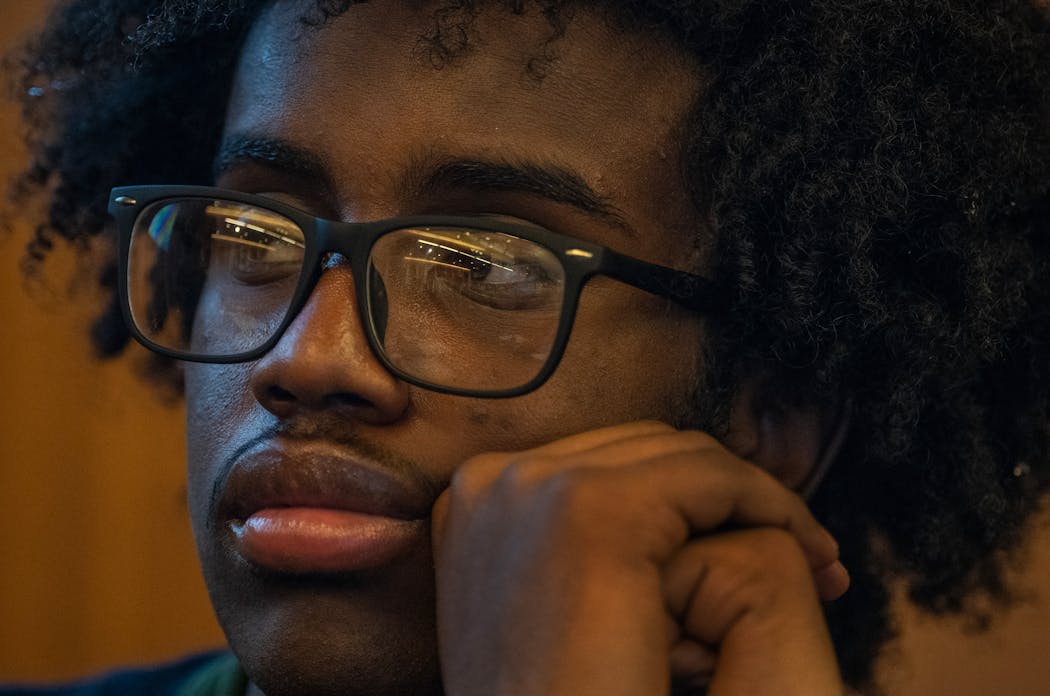Among the many new Minneapolis Public Schools board members are a couple fresh faces — two involved and passionate teenagers who can add "student school board representative" to their resumes.
Abdihafid Mohamed, a junior at Edison High, and Halimah Abdullah, a sophomore at Southwest High, took on the roles in February and will serve through the end of 2023. Abdihafid is also involved in track, wrestling and debate; Halima is active in several school clubs, including the Muslim Student Alliance and Black Students Union.
The school district first added a student role on the board in 2015; it added a second student position last year. The students, who receive a $5,000 stipend, are not voting members but help advise district leaders.
This year, the students will be in the room as board members discuss the tough decisions ahead, including a budget crunch and hiring the district's next superintendent.
These interviews were edited for length and clarity.
Q: Why did you want to be a student board representative?
Abdihafid: I wanted to be the student rep because I felt that it was the next step that I needed to take to ensure that I can help make a change. I've had countless peers express their dissatisfaction with the district and how it doesn't meet their learning needs. I felt motivated by this to step up and help change the district for the better.
Q: What have you learned so far?
Halimah: The Minneapolis Public Schools system is absolutely beautiful, and in every single way, it's also complex. The people here — once they know they can be — are community leaders and really do care about the children.
Before I was a student rep, the only view of the district I had was from my own high school. I couldn't see MPS as a whole. But once I became a rep, sitting in board meetings, I realized just how complicated the district is and how many different concerns there are from across many schools.
Q: What do you think about some of the tough decisions the district faces?
Halimah: I do feel like a lot of people have the right intentions and the right wants for the community, but at the end of the day, it's really hard to put all these changes in effect when there's simply not enough money in the budget. Sometimes it's heartbreaking to hear we're expected to have to make really hard choices while there are so many things that need to be implemented.
Q: What district issues do your peers ask you about?
Abdihafid: Lack of proper counseling due to the low number of counselors on site, communication from the district and the low number of gender-neutral bathrooms.
Halimah: Funding for the arts, funding for sports, more support for teachers, mental health support, curricula that prepare students for the real world and for college.
Q: What do you want district leaders to know about students?
Abidhafid: Students want to be a part of these big decisions that are being made for them, and I think they should actively try to reach the mass of students and make it more accessible. Over time, that will detach the anchor that is holding students back from realizing that they, too, are important and shouldn't see their high school days as a means to an end.
Q: What do you want the public to know about Minneapolis students and what they care most about?
Halimah: No matter the problems we have, we will always care about our education. That's a non-negotiable.
Q: What are your goals for this role?
Abdihafid: To learn about how the district operates and hopefully convince others to step in and learn too.
Q: Why is it important that the district involve students in decisions?
Abdihafid: It is important for students to be a part of these decisions not only for the sake of the present but for the future. If we don't nurture youth voice now, we're going to have a hard time thriving as a society. If all we're told is "no, no, no," that leaves limits on us and hinders the ability to grow and learn to our full potential.
Halimah: If our community — students, parents, teachers — felt more heard, more changes could happen. What's most important is that collaboration.

Want to share info with the Star Tribune? How to do it securely

'Safe recovery sites' would offer syringes, naloxone and more to people using drugs. The plan could be in peril.
New Minnesota GOP leaders seek peace with party's anti-establishment wing

Who is Republican Lisa Demuth, Minnesota's first House speaker of color?



